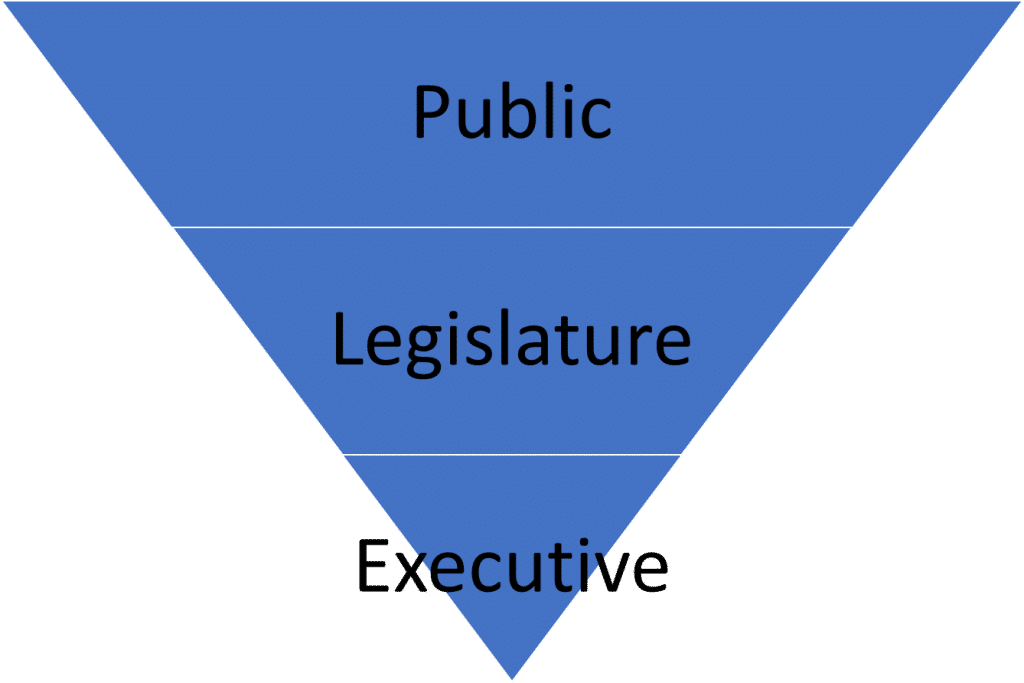In January 2016, David Cameron went to Brussels to renegotiate the EU-UK relationship. Also in January 2016, the IOM Government “confirmed its intention to progress its proposals for the redevelopment of Douglas Promenade.”
One of those things now appears to be complete.
The key benefits
The key benefit to the Isle of Man is that we will now have the United Kingdom in a more similar constitutional arrangement with foreign nations. This means that when it comes to global interactions, Manx foreign affairs will no longer be so controlled by a goods-driven Brussels-focused representation, but rather, by a more similar, service-driven, Westminster-based representation.
Further, the Isle of Man and the United Kingdom will now regain more control over migration and our borders, so that people from abroad are judged on the content of their character, and not the colour of their skin. The old immigration program as an EU-member had the very real effect of giving priority to more white Europeans at the expense of people who had different-coloured skin from elsewhere. It might not have been intended as a racially discriminatory policy, but when you prioritise Austrians ahead of Argentinians, Belgians ahead of Burmans, and Czechs ahead of Congolese, it has a very real discriminatory effect in practice. The EU-era migration system was also just stupid: Despite having lived here in the Isle of Man for six years, Australian Michael Josem received a deportation notice, but weeks later, German Michael Josem was given permanent residence in the Isle of Man. That’s a bad system.
Looking ahead, the Isle of Man will also benefit from greater re-engagement with the world. Rather than being trapped within Europe, these Isles will be able to trade more freely across the world. This will be good, because our future will be determined by our relationship with not just the 27 nations of the EU, but also with the 165 other nations of the rest of the world.
Democracy is better than an unshared community
The UK has decoupled its laws from the EU, and it returns to a clear and obvious democratic process to change its laws. Instead of the EU-style lobbying behind closed doors (which prioritised the interests of corporations instead of people) the Isle of Man will benefit from the United Kingdom returning to have vibrant and democratic debate in an open and free manner about laws.
This, I think, is the fundamental problem with democracy as it relates to the European Union. “The word ‘democracy’ has its origins in the Greek language. It combines two shorter words: ‘demos’ meaning whole citizen living within a particular city-state and ‘kratos’ meaning power or rule.” That first part – a citizen living within a community – is core to what we understand by democracy, because unfortunately, the people of the UK and the EU do not currently live as part of a community. Without that shared community, without that ‘demos’, we are left with only the ‘kratos’ – the power.
When I was growing up in Australia, it would have been absurd for someone to try to institute a shared government between Australia and New Zealand, because the communities were too far apart, and too disparate. There are (of course!) some very valuable shared institutions between Australia and New Zealand, but if even those two nations are too different to govern together, how could anyone think that the people of Portugal, Greece, Sweden, Germany, Poland, Ireland and the United Kingdom could share a government?
Hopefully, the EU project will succeed in the “core” EU nations of central-western Europe, where the citizens might well see themselves as part of a shared European community. Good luck to them! In that world, it will be better for the European Union to have the United Kingdom and the Isle of Man as good neighbours, rather than crappy housemates.
Mutual recognition
It was promising to hear British Prime Minister Boris Johnson mention mutual recognition today, because really, a product and service which is safe enough to be sold and used in Marown and Manchester should also be safe enough for Munich, Montreal, Memphis and Melbourne (and, vice-versa!).
Restoring the rightful pyramid of democratic control
Aside from the substantive benefits to the Isle of Man and the United Kingdom, there is an important procedural benefit to delivering on Brexit: a commitment to the democratic principles that the public should be in control of their politicians, who should in turn be in control of their government. Ignoring the result of the democratic vote of 2016 would have been catastrophic for public confidence in government across these Isles, and the political class would do well to remember that they are only temporary custodians of political power – they do not own it. The true ownership of political power rests, and must continue to rest, in the hands of the public.

Compromise and Moderation
Four-and-a-half years ago, on the day after the UK’s Brexit referendum, I took part in a forum on Manx Radio with the then-Chief Minister, and made the point that despite the Leave side earning more votes than any other thing in British history, the path forward should be marked by compromise and moderation (in part, as I said at the time, because two of the four constituent nations of the UK had voted against leaving). It is sad that over the subsequent years, the Ultras of the British Remain cause have consistently refused to compromise, and objected to any form of Brexit of any sort. Since I am someone driven more by pragmatism than dogmatic ideology, that is very disappointing to me. The subsequent debate seemed to be more virtue signalling and mood affiliation (“I’m not like that nasty Nigel Farage person”) than a serious consideration of the policy issues.
Finally, four-and-a-half years ago, I thought that one of the best arguments to remain as part of the European Union was the genuine belief that the Government of the European Union was good for its people. The negotiation farce that has unfolded over the last four-and-a-half years has disabused me of this notion. An organisation which tries to punish a member from leaving is not a good-intentioned club of free nations. It’s a mafioso organisation.
Header image created by Michael Josem, all copyright rights and other rights reserved.

